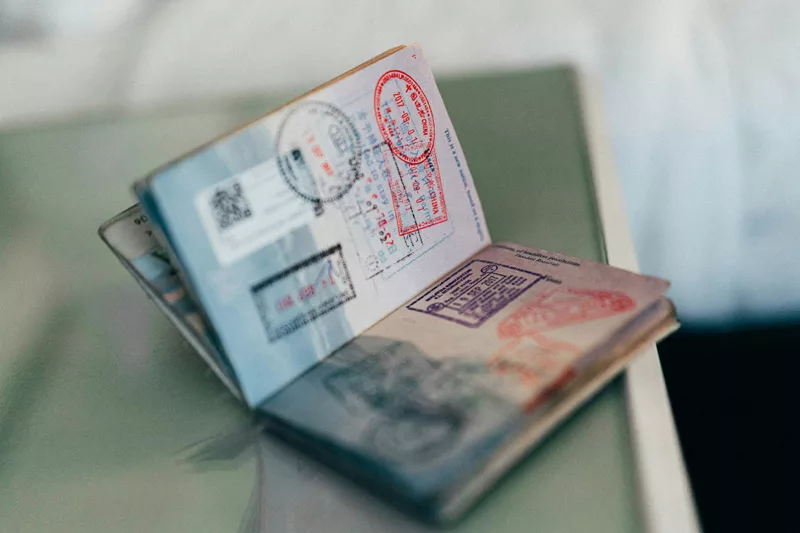
India jumped two spots to stand in the 82nd position in the Henley Passport Index, a list that showcases the world’s most powerful passports.
Indian citizens are allowed to visit 58 nations without a visa. The countries include top tourist destinations like Thailand and Malaysia.
The prestigious list saw Singaporean passport take the top spot. It allows holders to visit 195 nations without a visa.
“The city-state also sets a new record score, with its citizens now enjoying access to 195 travel destinations out of 227 around the world visa-free,” London-based global citizenship and residence advisory firm Henley & Partners said in its statement as it released the ranking list on Tuesday.
France, Germany, Italy, Japan, and Spain drop to joint-2nd place, each with visa-free access to 192 destinations, and an unprecedented seven-nation cohort, each with access to 191 destinations without a prior visa — Austria, Finland, Ireland, Luxembourg, Netherlands, South Korea, and Sweden — now sit in 3rd place on the ranking, which is based on exclusive and official data from the International Air Transport Association (IATA).
The UK hangs onto 4th place along with Belgium, Denmark, New Zealand, Norway, and Switzerland, despite its visa-free destination score falling to 190.
USA slips to eighth position
The US, on the other hand, continues its now decade-long slide down the index, dropping down to 8th spot, with access to just 186 destinations visa-free.
Former passport powerhouses, the UK and the US jointly held 1st place on the index 10 years ago in 2014.
Guess the weakest passport in the world
Afghanistan remains firmly entrenched as the world’s weakest passport, losing access to yet another destination over the past six months, leaving its citizens with access to only 26 countries visa-free — the lowest score ever recorded in history of the 19-year-old index.
Commenting in the July 2024 edition of the Henley Global Mobility Report, Dr. Christian H. Kaelin, Chairman of Henley & Partners and the inventor of the passport index concept, says, “The general trend over the past two decades has been towards greater travel freedom, with the global average number of destinations travelers are able to access visa-free nearly doubling from 58 in 2006 to 111 in 2024. However, the global mobility gap between those at the top and bottom of the index is now wider than it has ever been, with top-ranked Singapore able to access a record-breaking 169 more destinations visa-free than Afghanistan”.
Pakistan stands in the 100th position
Pakistan showed marginal improvement in its position and jumped six spots to stand at 100th place in the list.
Biggest climbers and fallers
The UAE makes it into the Top 10 for the first time, having added an impressive 152 destinations since the index’s inception in 2006 to achieve its current visa-free score of 185, and rising a remarkable 53 places in the ranking from 62nd to 9th position in the process.
Henley & Partners CEO, Dr. Juerg Steffen, says the country’s meteoric ascent “is the result of deliberate and concerted efforts by the Emirati government to position the UAE as a global hub for business, tourism, and investment. Our research has consistently shown a strong correlation between a country’s visa-free score and its economic prosperity. Nations with higher visa-free scores tend to enjoy greater GDP per capita, increased foreign direct investment, and more robust international trade relationships”.
Interestingly, both China and Ukraine are among the Top 10 countries that have climbed the highest in the ranking over the past decade.
Since 2014, China has jumped up 24 places from 83rd to 59th (with access to 85 destinations visa-free), while Ukraine has advanced by 23 spots, from 53rd to 30th, with its nationals able to visit 148 destinations without a prior visa.
Russia, on the other hand, has fallen seven places over the past ten years, from 38th to 45th position (with visa-free access to just 116 destinations).
The biggest faller over the last decade is Venezuela, which has plunged 17 places from 25th to 42nd on the Henley Passport Index.
The country is due to hold decisive presidential elections on 28 July that could change the fate of more than seven million Venezuelans who have fled their country over the past decade amid an economic and political crisis brought about by a crash in the oil price combined with chronic government corruption and mismanagement.
Yemen has tumbled 15 places to sit at 100th on the ranking, while both Nigeria and Syria have fallen 13 places to 92nd and 102nd, respectively. Bangladesh comes in as the 5th-biggest faller, dropping 11 places from 86th to 97th position over the past 10 years.


